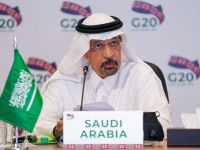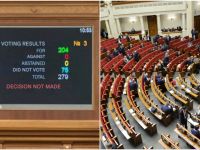Saudi Arabia’s Oil Minister Ali Al Nuaimi, speaking at the 10th Arab Energy Conference in Abu Dhabi on Sunday, blamed the current slide in oil prices on “non-Opec members and misleading information and speculation”.
Al Nuaimi said the country is ready to handle any obstacles that could arise due to price instability, and that he expects the oil markets and the oil industry to recover soon.
“Saudi Arabia has numerous projects, strong background and massive oil reserves. We are ready to handle any challenges. Oil prices will not have an impact on the economy.”
“There are massive investments in the expansion of the oil refineries. We have strong cooperation with Japan and the USA in various new projects.”
In a panel discussion on current developments in the oil and gas natural markets and their implications for energy sector in the Arab world, Dr Bassam Fattouh, director of Oxford Institute for Energy Studies spoke on recent oil dynamics and how the price went down from $115 (Dh422) per barrel to $60 per barrel.
He said there are short term uncertainties. “The return of Libya barrels, the return of Iranian barrels, oil output growth from Iraq, Opec situation and whether they would cut production?”
Domestic consumption
According to him, Gulf Cooperation Council (GCC) economies have become more resilient and have cash reserves. “One of the challenges facing the Arab world is the domestic consumption, which is rising faster than production affecting the exporting capability specially in the natural gas sector.”
Adil Abdul Mahdi, oil minister of Iraq said the country’s oil production has declined due to wars. “Our production has decreased significantly over the years. We are strengthening our cooperation with international oil companies to increase production, like Kuwait energy and Dragon oil from the UAE.”
He said the country’s total oil production would reach four million barrels per day after it reached an agreement on exports with the Kurdish government.
Kuwait’s oil minister Ali Saleh Al Omair said it’s not fair for Opec to take the decision to reduce the output while others continue to produce oil. “There should be cooperation between all the parties including Opec and others. We also as countries need to supply the market to the extent that we can accommodate and cover the necessary income.”
He said they have the capability to increase supply, but did not take the decision in order to avoid a glut. “There will be balance due to growth in the market.”
The three-day conference is taking place at a time when the world oil prices are going down due to oversupply and weak demand. Oil ministers from Gulf Cooperation Council (GCC) and other Arab countries are taking part in the event.
Qatar oil minister says market experiencing ‘temporary correction’
Abu Dhabi: The oil market is experiencing a “temporary correction” and fundamentals should dictate a fair price for oil, Qatar’s oil minister Mohammad Al Sada said in a speech on Sunday.
“We believe in the role of market fundamentals in dictating prices,” he told a meeting of ministers of the Organisation of Arab Petroleum Exporting Countries (Opec) in Abu Dhabi.
Al Sada also said the main reason for oil’s plunge in recent months was slow growth of the global economy and an increase in sources of supply, particularly unconventional.
Current oil prices may result in a weakening of investments in oil and gas projects, he added.
By Fareed Rahman








